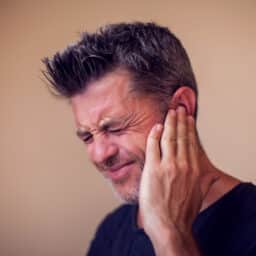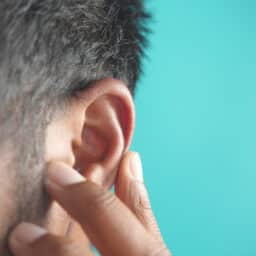What to Expect at a Hearing Test: From Evaluation to Personalized Results

Treating hearing loss starts with a hearing test. At your upcoming hearing test appointment, we’ll use a few different techniques to determine the extent of your hearing loss, the cause and the best treatment plan for your needs. Here’s a guide on what to expect. Evaluation To begin with, we’ll have a conversation about your…
Managing Hearing Loss in the New Year: Setting Realistic Listening Goals

Happy New Year! If your New Year’s Resolution for 2026 is to take better care of your health, don’t neglect your hearing health. Here are some goals or resolutions we recommend you adopt to prioritize your hearing health in 2026. Get Your Hearing Checked Approximately 30 million people in the United States require hearing aids….
How to Talk to Your Loved One About Getting a Hearing Test

If you suspect your loved one is losing their hearing, you may want to have a conversation about their hearing and getting their hearing tested. We know that this is a difficult conversation: sometimes they don’t believe they have hearing loss and avoid the issue; sometimes they even grow resistant and defiant; sometimes they may…
What is Hidden Hearing Loss?

Struggling to hear words or follow conversations, especially in noisy settings, is a common sign that it’s time for a hearing test. However, some people will get their hearing test results (called an “audiogram”) back and find that everything is in normal range. If this has happened to you, you may have a condition known…
What To Know About TMJ and Tinnitus

The temporomandibular (tem-po-roh-man-DIB-u-lur) joint is a hinge-like joint that connects the jawbone to the skull. There’s one on either side of the jaw, located just under the ears. TMJ disorders occur in the joint and muscles that control jaw movement, causing pain in the jaw or a clicking sound or grating feeling when you chew….
What to Know About Muffled Hearing in One Ear

Noticing muffled hearing in one ear feels like sound is coming through a wall or as if your ear is underwater. While it’s often temporary and harmless, muffled hearing in one ear can sometimes signal an underlying issue that needs attention. Read along to learn more about what to do if you experience muffled hearing…
How to Know the Difference Between Conductive Hearing Loss and Earwax Impaction

Hearing loss can occur due to a variety of causes, ranging from age to noise exposure to even ear blockages. While they may share some symptoms, they differ in their causes and long-term effects. While earwax impaction can be a cause for conductive hearing loss, it’s helpful to understand the range of conductive hearing loss…
What to Know About the Link Between Hearing Loss and Isolation

It’s vital to maintain healthy social interactions to protect mental health. Now that many parts of the world are returning to normal, people with hearing loss still face a higher risk of social isolation and feelings of deep loneliness. Keep reading to find out how to manage and overcome these emotional challenges. Understanding Social Isolation…
What to Expect Your First Time Wearing Hearing Aids
Approximately 28.8 million Americans could potentially benefit from using hearing aids. If you’re just starting to use hearing aids, you likely have several questions about what to expect during the adjustment period. Here’s a guide to help you transition smoothly with the sounds you will be able to hear again. Adjusting to New Auditory Experiences…
What to Know About Ear Stroke
An ear stroke, or sudden sensorineural hearing loss, occurs when a person loses hearing in one or both ears suddenly or over several days. It is a serious medical condition that can lead to permanent or temporary hearing damage if not treated promptly. Consider the following to understand what to do if you ever experience…